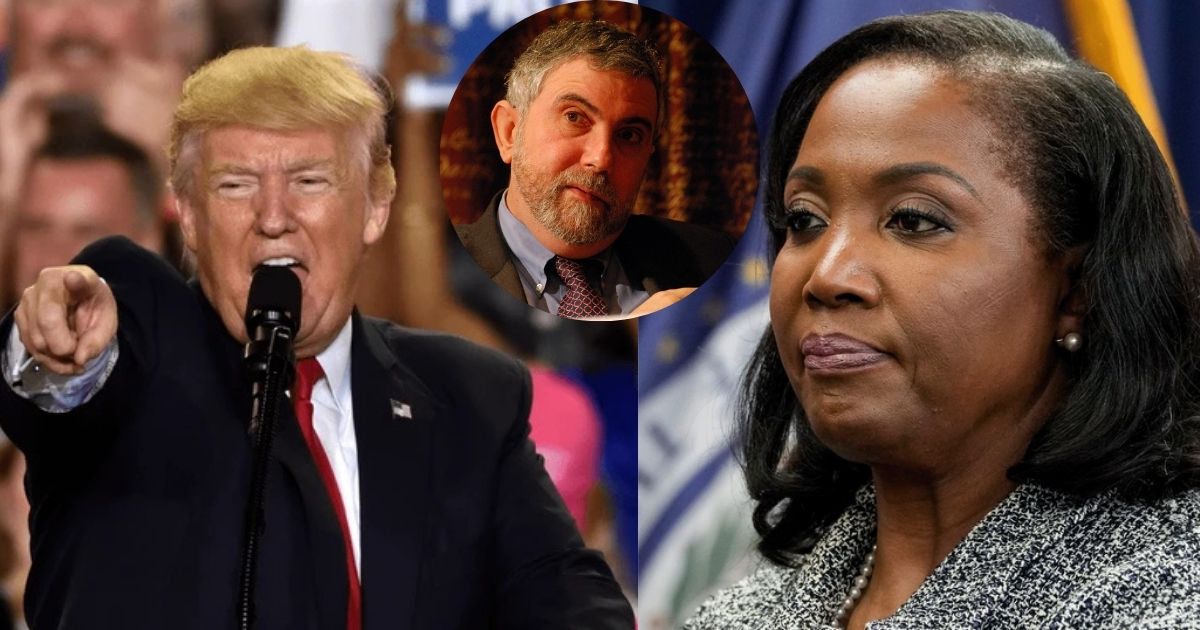Nobel Prize-winning economist Paul Krugman issued a sharp criticism of President Donald Trump this week. He condemned his unprecedented effort to oust Federal Reserve Governor Lisa Cook. The move which is already sparking legal battles, brought back into focus the debate over the independence of the central bank and the threat of authoritarian overreach in U.S. economic policy.
During an interview with CNN’s Jake Tapper on Tuesday, Krugman dismissed Trump’s claim that Cook should be removed over alleged mortgage fraud. He called the accusation baseless and politically motivated.
“This is completely insane,” the 2008 Nobel laureate told Tapper, adding there is “no evidence” to support Trump’s reasoning. Cook, appointed to the Fed Board of Governors by President Joe Biden in 2022, has denied any wrongdoing and publicly stated she has neither been charged nor convicted of a crime.
Cook herself responded by refusing to step down, insisting she will remain in her position. Reports indicate she is preparing to file a lawsuit to challenge Trump’s attempt at dismissal, setting the stage for a protracted legal battle that could test the limits of executive power over the Federal Reserve.
Krugman, writing in his widely read Substack newsletter the same day, warned of catastrophic consequences if Trump’s maneuver succeeds. He cautioned that Federal Reserve Chair Jerome Powell and the Supreme Court could either resist or enable what he termed an illegal power grab.
“If Powell caves or the Supreme Court acts supine again and validates Trump’s illegal declaration,” Krugman wrote, “the implications will be profound and disastrous.”
The economist drew a chilling parallel to Turkey’s economic crisis under President Recep Tayyip Erdoğan, who sidelined central bank independence by forcing through interest rate cuts.
That policy, Krugman noted, sent Turkish inflation spiraling toward 80 percent. “The United States will be well on its way to becoming Turkey, where an authoritarian ruler imposed his crackpot economics on the central bank,” he said, underscoring the danger of allowing political interference to dictate monetary policy.
View this post on Instagram
Trump’s critics argue that his push to remove Cook is aimed at reshaping the Fed to suit his own agenda. He has recently escalated his attacks on Powell, threatening to fire him as well, while signaling his desire to install loyalists who will more readily slash interest rates. Such a strategy, detractors warn, risks undermining the Fed’s independence and destabilizing the broader economy.
When Tapper pressed Krugman on what the episode means for the future of the central bank, the economist did not mince words. He declared Trump’s behavior to be “really awful” and far more alarming than the typical political pressure presidents exert on monetary policymakers.
“It would be bad enough if he were simply pressuring the Fed — if he were simply, even, managing to find some cause to fire somebody,” Krugman observed. “But this is actually saying, ‘If you, Federal Reserve official, get in my way or don’t follow my orders, I will ruin your life.’”
Important point by @paulkrugman on Trump’s attempted firing of Lisa Cook “Much of [tyranny’s] power comes not from overt violence but from their ability to threaten people’s careers and livelihoods, up to and including trumped-up accusations of criminal behavior.” pic.twitter.com/9Yyfif0wCs
— Eric Michael Garcia (@EricMGarcia) August 26, 2025
For Krugman, that statement epitomizes the kind of intimidation seen in authoritarian regimes. He described Trump’s actions as “pure intimidation, it’s personal intimidation,” warning that this type of coercion erodes democratic safeguards around the nation’s financial institutions. “So this is, really, this is the authoritarian playbook,” he said. “There’s a reason that we want the Fed to be really insulated.”
The controversy has now placed not only Lisa Cook but the very principle of central bank independence in the political spotlight. With a lawsuit pending and Trump signaling further pressure on Powell, the coming months may decide whether the Federal Reserve can continue to operate free from direct executive control, or whether Krugman’s warnings of a slide toward authoritarian economics prove to be true.









